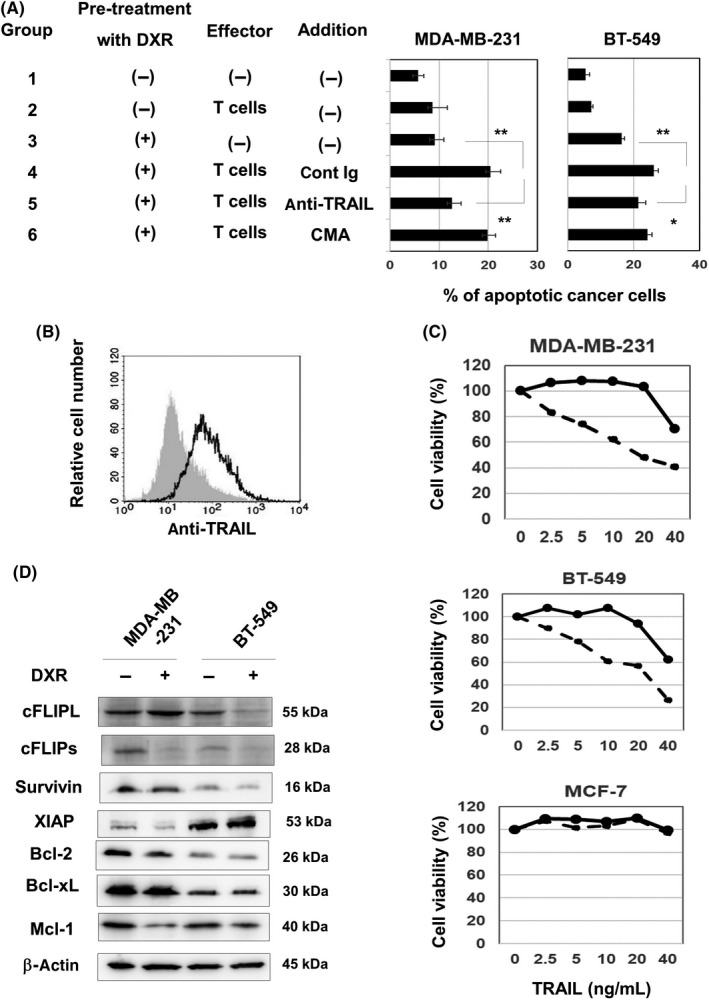Figure 3.

Tumor necrosis factor‐related apoptosis‐inducing ligand (TRAIL) is involved in increased sensitivity of doxorubicin (DXR)‐treated MDA‐MB‐231 cells to activated T cells. A, Cancer cells were treated with or without DXR (250 nmol/L for MDA‐MB‐231 and 100 nmol/L for BT‐549) for 2 d. After harvesting, cancer cells were cultured with expanded activated T cells for 6 h. In some groups, anti‐TRAIL Ab, control mouse IgG, or concanamycin A (CMA) was added 1 h before the addition of cancer cells. After harvesting these cells, whole cells were first stained with anti‐CD45‐APC, followed by annexin V‐FITC and analyzed by flow cytometry, as Figure 2B. Results of 3 wells are shown. *P < .05, **P < .01. B, In vitro expanded T cells were examined by flow cytometry after staining with phycoerythrin (PE)‐conjugated anti‐TRAIL Ab or control mouse IgG, followed by FITC‐conjugated anti‐mouse IgG. Gray background is the control. C, Cancer cells were treated with or without DXR (250 nmol/L for MDA‐MB‐231, 100 nmol/L for BT‐549, and 200 nmol/L for MCF‐7) for 2 d. After harvesting, cancer cells were cultured with recombinant TRAIL for 2 d. Cell viability (%) was determined using the WST‐8 assay. Bold and dotted lines are untreated and death receptor‐treated cancer cells, respectively. Results of 3 wells are shown. D, Two breast cancer cell lines were cultured with DXR (250 nmol/L for MDA‐MB‐231 and 100 nmol/L for BT‐549) for 48 h. Immunoblotting analysis was undertaken using the lysates from untreated and DXR‐treated cancer cells with the indicated Abs. β‐Actin was used as a control
